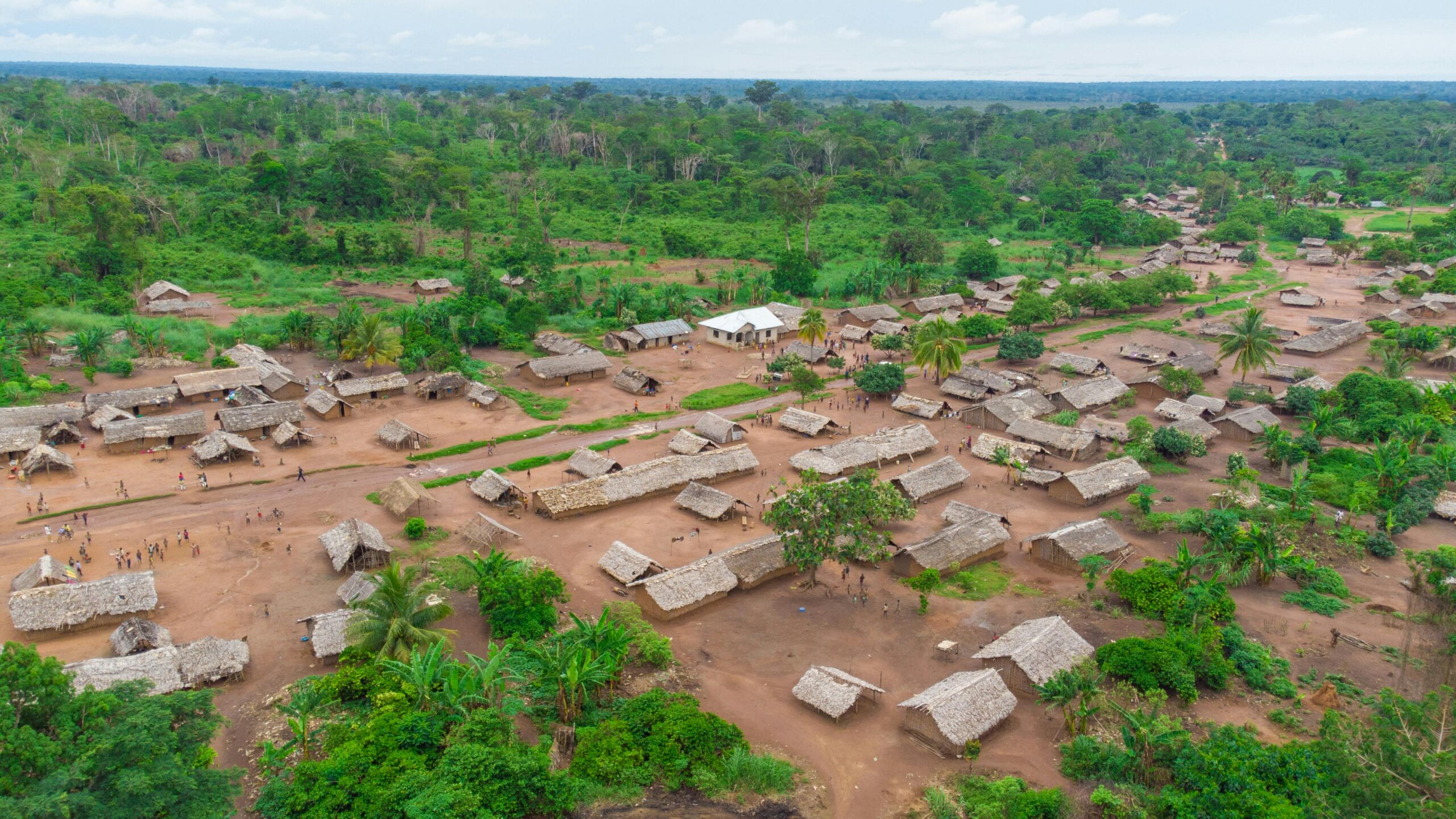Eco-centered compassion training merges environmental awareness with mindful living, offering transformative practices that help individuals reconnect with nature while building a more sustainable future.
🌱 What Is Eco-Centered Compassion Training?
Eco-centered compassion training represents a revolutionary approach to personal development that places environmental consciousness at its core. Unlike traditional mindfulness practices that focus solely on individual well-being, this methodology extends compassion beyond human boundaries to encompass all living beings and ecosystems. It recognizes that our personal health is intrinsically linked to planetary health, creating a holistic framework for sustainable living.
This training methodology draws from ancient wisdom traditions, modern psychology, and environmental science to create a comprehensive program. Participants learn to cultivate deep empathy not just for fellow humans, but for animals, plants, rivers, forests, and the entire web of life that sustains our existence. The practice encourages a fundamental shift in perspective—from viewing nature as a resource to be exploited, to recognizing ourselves as integral parts of a living, breathing ecosystem.
The foundation of eco-centered compassion training rests on three pillars: awareness, connection, and action. Awareness involves recognizing our impact on the environment through daily choices. Connection focuses on developing emotional bonds with the natural world through direct experience. Action translates these insights into concrete behavioral changes that support ecological balance and restoration.
The Psychology Behind Environmental Compassion
Understanding the psychological mechanisms that enable environmental compassion helps explain why this training proves so effective. Research in environmental psychology demonstrates that emotional connection to nature significantly increases pro-environmental behavior. When people develop genuine affection for natural spaces and living creatures, they become naturally motivated to protect them.
The concept of “ecological self” proposed by deep ecology philosophy suggests that personal identity can expand to include the natural world. Through eco-centered compassion training, individuals experience this expansion firsthand, dissolving the artificial boundaries between self and environment. This psychological transformation creates lasting behavioral change because protection of nature becomes self-protection.
Neuroscience research supports these practices as well. Studies show that spending time in nature and practicing compassion meditation activate similar brain regions associated with well-being, empathy, and emotional regulation. The combination of both practices in eco-centered training creates synergistic effects, enhancing both mental health and environmental consciousness simultaneously.
🌍 Core Practices for Developing Earth-Centered Awareness
Several foundational practices form the backbone of eco-centered compassion training. These exercises can be integrated into daily routines, gradually transforming one’s relationship with the environment and fostering sustainable habits.
Nature Immersion Meditation
Nature immersion meditation involves spending time outdoors with full sensory awareness. Rather than hiking for exercise or scenery, practitioners engage all senses—listening to bird songs, feeling wind on skin, observing patterns in bark, inhaling forest scents. This practice cultivates present-moment awareness while simultaneously deepening appreciation for natural complexity and beauty.
Regular practitioners report feeling less separate from their surroundings and more invested in environmental protection. The practice requires no special equipment or location—even urban parks, gardens, or single trees can serve as meditation focal points. The key lies in quality of attention rather than wilderness access.
Loving-Kindness for All Beings
Traditional loving-kindness meditation extends wishes of well-being to oneself, loved ones, neutral people, difficult people, and all beings. Eco-centered versions explicitly include animals, plants, and ecosystems in this practice. Practitioners might visualize a specific forest, send compassion to endangered species, or extend goodwill to the ocean.
This practice systematically breaks down the hierarchy that places humans above other life forms. By regularly wishing well-being for non-human entities, practitioners develop genuine care that naturally influences daily choices—from diet to consumption patterns to political engagement on environmental issues.
Carbon Footprint Contemplation
This practice involves mindfully examining the environmental impact of daily activities without judgment. Practitioners track the origins of their food, the energy sources powering their homes, and the lifecycle of products they purchase. Rather than inducing guilt, this contemplation builds awareness that informs wiser choices.
The practice transforms abstract concepts like carbon emissions into tangible realities connected to personal actions. Understanding that a morning commute, dietary choice, or purchase decision has real environmental consequences makes sustainability personal and immediate rather than distant and theoretical.
Building Emotional Resilience for Environmental Challenges
Climate change, biodiversity loss, and environmental degradation can trigger eco-anxiety, grief, and feelings of overwhelm. Eco-centered compassion training explicitly addresses these emotional challenges, providing tools for processing difficult feelings while maintaining engagement rather than retreating into denial or despair.
The training acknowledges that caring deeply about environmental destruction is emotionally demanding. Rather than suppressing these feelings, practitioners learn to hold them with compassion while maintaining hope and agency. This emotional resilience proves essential for sustained environmental action over years and decades.
Techniques include grief rituals for extinct species or destroyed ecosystems, peer support circles for sharing environmental concerns, and practices that balance awareness of problems with recognition of positive developments. This balanced approach prevents burnout while maintaining the emotional authenticity necessary for genuine engagement.
🌿 Translating Compassion into Sustainable Action
Eco-centered compassion training explicitly bridges the gap between internal transformation and external behavior change. The most effective programs include action components that help participants translate insights and feelings into concrete sustainable practices.
Sustainable Consumption Practices
Participants learn to evaluate purchases through the lens of environmental impact. This includes choosing products with minimal packaging, supporting companies with strong environmental commitments, embracing secondhand and sharing economies, and simply consuming less overall. The practice emphasizes intention over perfection, recognizing that sustainable living is a direction rather than a destination.
Training often includes practical workshops on topics like composting, reducing plastic use, energy conservation, and sustainable fashion. These hands-on elements ensure participants develop actual skills rather than just theoretical knowledge.
Plant-Based Eating Exploration
Given agriculture’s significant environmental footprint, most eco-centered compassion programs address food choices. Rather than demanding immediate dietary overhaul, training typically encourages gradual exploration of plant-based eating, starting with one meal per day or designated plant-based days weekly.
The approach emphasizes the compassionate dimension—recognizing connections to farm animals and agricultural workers—while also educating participants about the environmental impacts of different dietary patterns. This dual focus on compassion and ecology proves more motivating than environmental statistics alone.
Community Environmental Projects
Most programs include opportunities for collective action, from tree planting to beach cleanups to habitat restoration. These group activities build community among participants while demonstrating that individual actions, when multiplied, create substantial impact. The shared experience also reinforces commitment and provides accountability.
Community projects help participants move beyond the isolation of individual lifestyle changes into the empowerment of collective action. This social dimension proves crucial for long-term engagement with environmental issues.
Digital Tools Supporting Eco-Centered Practice 📱
Modern technology offers valuable resources for supporting eco-centered compassion training. Various applications help users track environmental impact, maintain meditation practices, connect with like-minded communities, and access educational resources.
Meditation apps increasingly offer nature-focused content, from guided meditations in forest settings to practices specifically designed for cultivating environmental connection. Some applications combine mindfulness training with ecological education, creating integrated learning experiences.
Carbon tracking applications help users understand and reduce their environmental footprint by monitoring transportation, energy use, and consumption patterns. When used mindfully rather than obsessively, these tools support the awareness component of eco-centered training.
Community platforms connect individuals engaged in sustainable living, providing spaces for sharing experiences, challenges, and successes. These digital communities extend the support and accountability of in-person training programs, making eco-centered practice accessible to those without local resources.
🌎 Scientific Evidence for Eco-Centered Approaches
Research increasingly validates the effectiveness of combining compassion practices with environmental education. Studies demonstrate that nature-based mindfulness interventions increase pro-environmental behavior more effectively than information alone.
One significant study published in the Journal of Environmental Psychology found that participants who completed eight weeks of nature-connected mindfulness training showed significant increases in environmental identity, nature connectedness, and sustainable behaviors compared to control groups. These changes persisted at follow-up assessments months later.
Research on compassion training shows it increases empathy, reduces stress, and enhances well-being. When this training explicitly includes non-human entities, participants develop broader circles of moral concern that naturally extend to environmental protection. The emotional engagement fostered by compassion practices appears to motivate behavior change more effectively than purely cognitive approaches.
Conservation psychology research emphasizes that emotional connection to nature serves as a stronger predictor of environmental behavior than knowledge about environmental problems. Eco-centered compassion training leverages this insight by prioritizing experiential connection and emotional engagement alongside education.
Integrating Practice into Daily Life
The true test of eco-centered compassion training lies in sustained integration into everyday life. Successful programs emphasize gradual, manageable changes rather than overwhelming lifestyle overhauls. This approach recognizes that sustainable transformation requires realistic expectations and self-compassion.
Morning practices might include brief nature connection—observing weather, noticing birds, or tending plants—combined with setting environmental intentions for the day. Meal times offer opportunities for gratitude practices acknowledging the earth, water, sun, and labor that produced food. Evening reflections might review the day’s choices through an ecological lens.
Practitioners learn to view challenges and imperfections as learning opportunities rather than failures. Someone who forgot reusable bags at the grocery store practices self-compassion while problem-solving how to remember next time. This forgiving approach prevents the all-or-nothing thinking that derails many sustainability efforts.
Teaching Eco-Centered Compassion to Children 🌱
Introducing children to eco-centered compassion training cultivates environmental stewardship from an early age. Age-appropriate practices help young people develop nature connection, ecological awareness, and sustainable habits that can last a lifetime.
For children, nature immersion looks like unstructured outdoor play, nature art projects, and guided exploration of local ecosystems. Compassion practices might involve caring for classroom animals or plants, learning about wildlife, and discussing how our choices affect other creatures. The emphasis remains on wonder, curiosity, and connection rather than fear or obligation.
Educational approaches that combine environmental science with emotional engagement prove particularly effective. When children understand both the mechanics of ecosystems and develop personal connections to natural spaces and creatures, they become invested in protection naturally rather than through external pressure.
🌏 Creating Ripple Effects in Communities
Individual transformation through eco-centered compassion training naturally extends outward, influencing families, workplaces, and broader communities. Practitioners often become informal environmental educators, sharing practices and insights with others through example and gentle invitation rather than judgment or preaching.
Community formation represents a powerful aspect of this training. When groups of people share commitment to eco-centered living, they create supportive networks that make sustainable choices easier and more enjoyable. Shared resources like tool libraries, carpooling arrangements, and community gardens emerge organically from these connections.
Some practitioners take leadership roles, organizing workshops, initiating environmental projects, or advocating for policy changes. The training provides not just personal practices but a framework for understanding how individual, community, and systemic changes interconnect in creating sustainable futures.
Addressing Common Challenges and Obstacles
Eco-centered compassion training acknowledges real barriers to sustainable living, including economic constraints, lack of infrastructure, limited time, and social pressures. Effective programs help participants navigate these challenges rather than ignoring them.
Economic realities mean that not everyone can afford solar panels, electric vehicles, or premium organic products. Training emphasizes that sustainable living encompasses many choices beyond purchases—from conserving energy to reducing waste to supporting environmental causes through advocacy and voting. Impact comes from consistent small actions within one’s means rather than expensive but sporadic gestures.
Social challenges arise when friends and family don’t share environmental values. Practitioners learn to maintain their commitments while respecting others’ autonomy, communicating through example rather than criticism, and finding common ground where possible. This skillful approach prevents the isolation that sometimes accompanies lifestyle changes.
The Future of Eco-Centered Training 🔮
As environmental challenges intensify, eco-centered compassion training will likely become increasingly mainstream. Educational institutions, healthcare systems, and workplaces are beginning to recognize the value of practices that simultaneously support individual well-being and environmental sustainability.
Future developments may include more sophisticated integration of technology with nature-based practices, expanded research demonstrating effectiveness, and broader cultural acceptance of ecological perspectives. The fundamental insight—that human flourishing depends on planetary flourishing—will continue driving interest in approaches that honor this interconnection.
The practice also continues evolving as diverse communities adapt core principles to specific cultural contexts, landscapes, and challenges. This flexibility ensures relevance across different populations while maintaining the essential focus on compassion, connection, and sustainable action.

Your Journey Toward Earth-Centered Living 🌟
Beginning eco-centered compassion training requires no special credentials, expensive equipment, or dramatic life changes. The journey starts with simple steps: spending mindful time in nature, learning about environmental issues, examining daily choices through an ecological lens, and cultivating compassion for all beings.
Many practitioners begin with a single practice—perhaps a weekly nature walk, transitioning to reusable products, or exploring plant-based recipes—and gradually expand their engagement. The key lies in consistency and self-compassion rather than perfection. Small, sustained actions accumulate into significant transformation over time.
Resources abound for those interested in deeper engagement, from online courses to local workshops to books and documentaries. The growing community of eco-centered practitioners offers support, inspiration, and practical guidance for navigating the path toward more sustainable living.
Ultimately, eco-centered compassion training offers a hopeful vision for addressing environmental challenges. By recognizing our deep interconnection with all life and cultivating compassion that extends beyond human boundaries, we discover motivation and resilience for creating truly sustainable futures. This approach honors both the urgency of environmental crises and the human need for meaning, connection, and joy. In embracing the earth with open hearts and conscious actions, we participate in the essential work of our time—ensuring a thriving planet for generations to come.
Toni Santos is an eco-spirituality researcher and planetary healing writer exploring how earth-based rituals, nature-centred philosophy and sacred ecology reconnect humanity with the living planet. Through his work on environment, consciousness and ritual, Toni examines how our relationship with Earth influences our awakening and actions. Passionate about land-wisdom, ritual practice and ecological integration, Toni focuses on how spiritual life can emerge from ecological awareness and how healing flows from land, water and community. His work highlights the union of ecology, mind and spirit — guiding readers toward a more grounded, relational, and sacred life. Blending ritual studies, environmental philosophy and ecological design, Toni writes about the human-earth story — helping readers understand how living systems, community and meaning intertwine in planetary healing. His work is a tribute to: The sacred connection between humanity and Earth’s living systems The power of ritual to rekindle land-memory and collective renewal The vision of ecology as sacred, relational and transformational Whether you are a ritual practitioner, ecological thinker or planet-healer, Toni Santos invites you to explore the path of planetary awakening — one ritual, one ecosystem, one transformation at a time.




